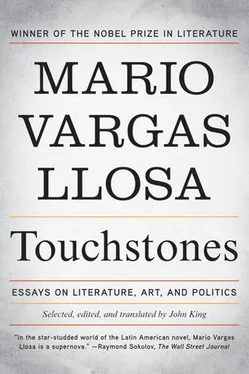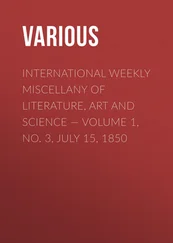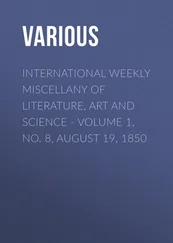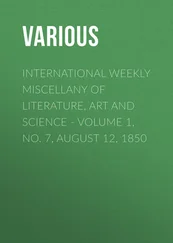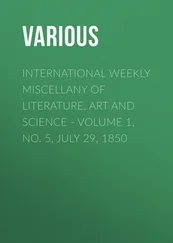Cosmopolitanism is diametrically opposed to fanaticism, and he has commented on the terrorist atrocities in New York, Madrid and London, contrasting his own memories of living in these vibrant cities with the outrages committed by fanaticism.
If such outrages bring to attention the difference between ‘closed’ and ‘open’ mentalities and societies, they also illustrate Vargas Llosa’s continued interest in the means that are used to effect social change, in particular the utopia of revolutionary change. In his article on the London bombings, he draws a comparison with the anarchist bombers in London of the late nineteenth and early twentieth century — immortalised in Conrad’s depiction of political fanatics, The Secret Agent — who targeted specific, ‘class’ enemies, with the indiscriminate killing of dozens of people on London underground trains and buses. His essay on Malraux’s La Condition humaine in this book (written in 1999) also explores the issue of the moral justification for violence.
Vargas Llosa’s own novel Historia de Mayta ( The Real Life of Alejandro Mayta , 1984) depicts a deluded revolutionary activist in the early 1960s, and several of his novels of the 1980s and early 1990s explore the utopia of revolutionary violence, with increasing criticism of fanaticism in whatever form. For Vargas Llosa, the explanation for the bombings of the last years seems to be the creation of a world purged of sacrilegious and corrupt elements of whatever race or background, in which ‘only the community of the true believers will reign. This is the craziest utopia yet amongst all the utopias that have littered the history of humanity with corpses’. 9Yet in his latest work he does not paint all utopian thinking with the same brush of fanaticism, as his analysis of La Condition humaine reveals. Travesuras de la niña mala (2006) contains a fictionalised account of a friend who joined the guerrilla movement in Peru in the 1960s and was killed. This character is treated with much greater sympathy and understanding than the deluded Mayta of the mid-1980s; there is an understanding of what might be seen as wrongdoings in others.
In recent years Mario Vargas Llosa has worked with his daughter Morgana, who is a photographer, on several projects, including two illustrated books, one on Iraq — Diario de Iraq ( Iraq Diary , 2003) — and the other on the Israel — Palestine conflict — Israel/Palestina: paz o guerra santa ( Israel/Palestine: Peace or Holy War , 2006). Both of these are based on a core group of eight articles, initially published in El País , describing visits to Iraq in the immediate aftermath of the invasion, and the West Bank/Gaza Strip at a moment when several Jewish settlements were being removed.
This volume includes the eight central articles from the Iraq Diary . When interviewed about the threatened invasion of Iraq in February and early March 2003, he declared himself to be against the invasion without the proper UN mandates. Two and a half months after the symbolic toppling of the statue of Saddam Hussein in Baghdad, he visited Iraq to see for himself the aftermath of the regime. In the course of a packed twelve-day visit, from 25 June to 6 July, he gained access to some of the most important political figures involved, from US Ambassador Paul Bremer to the principal Shia ayatollah, Mohammed Bakr al Hakim, as well as a range of other interlocutors: students, businessmen, teachers, army officials, religious clerics, people in the street surveying the effects of the widespread looting, chance encounters in cafés and restaurants. Three of his main sources, the imam al Hakim, the UN special envoy Sergio Vieira de Mello and (Spanish) navy captain Manuel Martín-Oar, were assassinated between his departure from Iraq on 6 July and his writing a prologue to the book on 6 September. In the course of this visit, he changed his mind about the invasion and argued that in very exceptional circumstances it could be justified as a lesser of two evils, since it rid the world of an abominable dictator. The invasion should have had a UN mandate, but Jacques Chirac — one of his pet hates, along with other self-serving French politicians — had vetoed this option. His observations about Iraq and the people he interviewed, his depiction of a devastated but still optimistic society (certain political commentators see the six months following the invasion as a time of relative optimism, before the situation became increasingly violent) rank amongst his best journalistic writings. The book operates in part as a non-fictional sequel to La fiesta del chivo ( The Feast of the Goat , 2000), his novel about the dictatorship of Trujillo in the Dominican Republic and its aftermath: many of the actions of Saddam Hussein and his brutal son Uday — torture, massacre and overwhelming cruelty — remind Vargas Llosa of what he heard about the Dominican dictator. I say non-fictional, but Vargas Llosa also adds a fictional gloss to the photographs taken by Morgana, imagining the daily lives of the Iraqi people in the pictures — images that, in general, show some degree of optimism, of people in the immediate aftermath of the invasion hoping for a better future.
The book on Israel — Palestine has appeared recently, too recently to be included in this selection of essays. It is based on a two-week visit to the region between 30 August and 15 September 2005, and once again it shows an independent line with respect to international relations. A long-time defender of Israel and recipient of the 1995 Jerusalem Prize, Vargas Llosa is not afraid to point out his opposition to what he sees as a mistaken policy towards the Palestinian population. In this analysis, he supports a number of Israeli critics working inside Israel. He makes what might at first appear a surprising observation, declaring that the only place he can ever feel left-wing now is in Israel, amongst the Israeli left that he sees as undogmatic, open, heroic and ethical: les justes , in Camus’s terms.
It is this community of les justes that he finds in the main lacking among the left in Latin America. He speaks of a moment in the mid-1970s when he visited Israel for the first time, a moment when he was reconsidering his attachment to the ‘hemiplegic’ left — a phrase borrowed from Revel to describe moral double standards — in Latin America which, at that time, ‘would condemn dictators if they were right-wing, whilst praising them and bathing them in incense if they declared themselves communist, like Fidel Castro’, defending populism and turning a blind eye to corruption, intellectual censorship and outmoded state-led, dirigiste economies. 10
His conversion in the 1970s to what he calls ‘bourgeois democracy, individual sovereignty, a reduced State and an expanded civil society, and the market politics of liberal philosophy’ 11also marks his current writing on the nature of Latin American societies. I have included four examples, two on the break-up of the Fujimori regime in 2001, and two that chart the advances of Chile, a country forging, after the dictatorship of Pinochet, a strong social democracy. Fujimori, who defeated Vargas Llosa in the presidential election campaign of 1990, is seen in these two articles as a corrupt dictator, abetted by a sinister henchman, Vladimiro Montesinos, who kept a video record of all the politicians, businessmen, judges, bankers and media personnel he bribed over the decade. Chile is now seen as a model for Latin American development, turning its back on the seventeen-year dictatorship of Pinochet — who should be subject to the processes of international law for systematic violations of human rights — embracing liberal reforms and conducting itself in accordance with the rules of democratic processes.
Читать дальше
